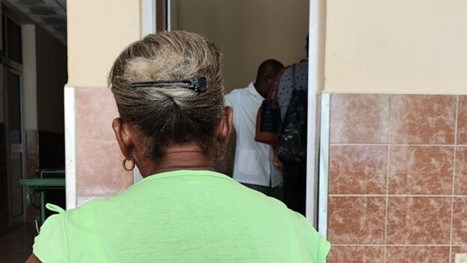
The trial of several doctors over the death of a patient in Bayamo, Granma, has set off a wave of indignation among health workers.
HAVANA TIMES – The bursting into tears last Monday of Dr. Yoandra Quesada de Bayamo (Granma), who is being tried along with five other colleagues for the death of a 23-year-old patient, is nothing but the vivid image of what remains of healthcare in Cuba, the eternal jewel in the crown for revolutionary propaganda.
What the surgeon said to the journalist Ernesto Morales – “all your colleagues leave, you are working alone and without materials, exposed to being killed one day by a desperate relative” – is verified daily by any Cuban who steps into a healthcare center. The situation of primary services is especially dramatic.
“There are no syringes, there are no reagents for the tests, there are no nozzles to give aerosol, there are no esfigmos [sphygmomanometers] to take blood pressure.” Aleida, who unravels this litany, is still young, but she is beginning to have problems with hypertension, a condition that leads to the number one cause of death on the Island.
“One day when I arrived at the hospital with high blood pressure, they wanted to give me oxygen, but there were no mouthpieces, so the doctor gave me the hose and said: ’don’t put it in your mouth, put it close, so that you feel the oxygen.’” Aleida couldn’t do it, because of the stench that the instrument gave off and out of shame. “I took it and told him: look, this doesn’t smell good. But in addition, I felt ridiculous, with that oxygen escaping everywhere.”
That day, she was lucky, because she usually has to walk miles and make a pilgrimage through several centers before finding one where a device to measure blood pressure is available. “The first time I went to the polyclinic near my house, where there were no esfigmos anywhere, the doctor told me: I can’t take your pressure, little girl, but come and sit here, the only thing I can give you is a long talk.’”
Who does have sphygmomanometers? “Foreign residents often have them and are always given a more pleasant treatment than Cubans by the way,” says Aleida. Faced with the exodus of specialists, outside the Island or to other jobs that provide them with better salaries, the Government tries to solve the lack of labor with exchange students, who cov


